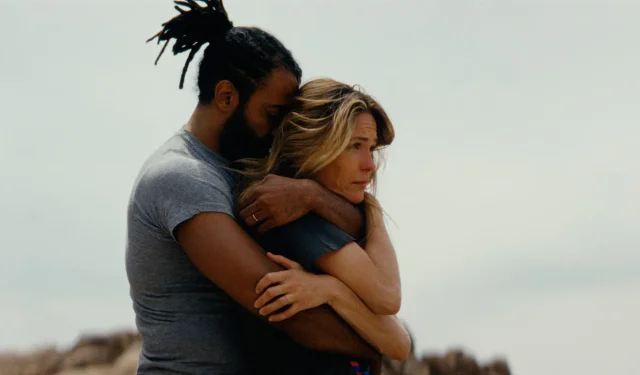Exploring the Depths of Magic Hour: A Review
Katie Aselton returns as a director in her fourth cinematic venture, Magic Hour, a film that subtly invites viewers to unpack its emotional layers without revealing too much upfront. Set against the backdrop of the desert, this poignant drama follows a couple grappling with their future. Aselton takes on the role of Erin, navigating a spectrum of emotions that sway from sorrowful to carefree, while Daveed Diggs plays Charlie, a character that radiates a warm charm. However, there’s an unsettling truth that lingers beneath Charlie’s perfect facade.
Aselton’s Directing Journey
Previously, Aselton has directed notable films including The Freebie (2010), a standout marriage narrative, and the recent Mack & Rita (2022), which, despite not being a personal project, showcased her versatility. With Magic Hour, she leans into her indie filmmaking roots, eliciting authentic performances that feel at home within the film’s emotional framework.
Character Dynamics and Emotional Exploration
As the plot unfolds, Erin’s fluctuating moods begin to resonate more deeply once the cause of her inner turmoil is unveiled. Aselton adeptly navigates through Erin’s evolving mental state, while Diggs portrays Charlie with impressive nuance, embodying both patience and appeal. Their relationship becomes increasingly compelling, particularly during tense exchanges where Charlie confronts the blame Erin places on him for unforeseen events. This heartfelt dynamic serves as the film’s emotional backbone, grounding it even as imaginary instances occur, such as a dramatic cliff fall that somehow leaves no lasting damage.
A Familiar Narrative Core
Written alongside her husband, Mark Duplass, the script delves into themes of loss, grief, and healing—elements that may feel reminiscent of prior cinematic tales. Although the film’s trajectory becomes apparent after the twist is revealed, the dialogue remains sharp and genuine. Nonetheless, the overall storyline struggles to transcend its predictable elements.
Visuals and Cinematic Style
Despite its narrative shortcomings, Magic Hour boasts stunning visuals, thanks to cinematographer Sarah Whelden. The vividly vibrant palette introduces a hyperreal ambiance that aligns with the story’s exploration of perception versus reality, causing viewers to question how much of Charlie is idealized. Expansive shots of the desert emphasize the couple’s solitude, further accentuated by the relentless sun.
Supporting Characters and Thematic Additions
The cast shines with strong supporting performances. Brad Garrett appears as Erin’s supportive yet quirky friend, whose remote residence becomes a refuge. Meanwhile, Susan Sullivan brings energy and humor as Erin’s mother, whose misguided attempts to assist introduce both warmth and exasperation. However, some supporting roles feel somewhat superfluous, seemingly included to enrich the narrative without fully evolving the story.
Editing Choices and Pacing
Despite a succinct runtime of 80 minutes, certain sequences, such as close-up nature shots and montages—including Erin’s drag queen friends attempting to elevate her spirits—can feel excessively drawn-out. Although the drag sequence aims to convey a message about empathy, it may come across as contrived. In contrast, Erin’s exhilarating go-kart race with friends is effectively suspenseful, showcasing adept editing that heightens anticipation.
Final Thoughts
While Magic Hour possesses both eloquence and occasional stumbling blocks, it ultimately evokes a desire for a bolder narrative. The film excels in emotional resonance and visual artistry, but a more unpredictable storyline could have elevated its impact significantly.


